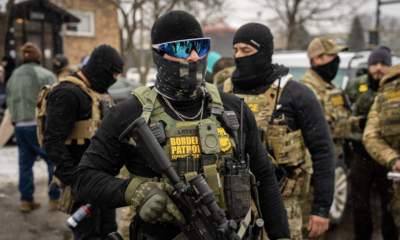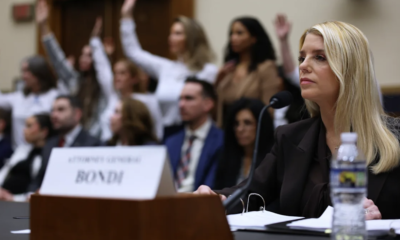Technology
Petition seeks SIT into government using Pegasus spyware on Indian citizens
A petition filed in the Supreme Court is seeking a Special Investigation Team (SIT) into the reports of the government allegedly using Pegasus spyware on Indian citizens, including activists, journalists and opposition politicians.
Advocate ML Sharma, in the petition, said that the Pegasus software is being used by the Prime Minister and his ministers to spy on Indian citizens for their vested political interest. He asked whether the Constitution allows the Prime Minister and his Ministers to snoop on citizens of India for their vested political interest. Sharma urged the SC to examine if snooping in this case does not attract offences under the Official Secrets Act, Information Technology Act besides violating Article 21 – fundamental rights.
Moreover, the PIL claims that around 50,000 phone numbers were believed to be targeted by clients of the Israeli company NSO Group, since 2016, that was leaked to major news outlets. “The right to privacy was not about the wish to hide, as is often asserted. It is about having space of one’s own where our thoughts and our being are not the instrument of someone’s else’s purposes. It is an essential component of dignity,” Sharma said. “Pegasus is not just a surveillance tool. It is a cyber-weapon being unleashed on the Indian polity. Even if authorized, the use of Pegasus poses a national security risk.”
Sharma further said if Pegasus is present in India, we stand out because we are part of the club of mostly authoritarian and semi-authoritarian states using this technology. “It does not speak well of us as a democracy.”
Also Read: RBI working on its digital currency to reduce currency costs for government
Meanwhile, the Editors Guild of India (EGI) has expressed shock and demanded an independent enquiry. It conveyed its dismay over claims that Indian journalists and activists were surveilled using Pegasus, despite the NSO Group’s CEO Shalev Hulio explicitly saying that journalists, human rights activists and civil organizations were all off-limits.
“While some of the instances of surveillance might have been targeted against those who may be seen as credible national security threats, what is disturbing is that a large number of such targets were journalists and civil society activists. This is a brazen and unconstitutional attack on the freedom of speech and press. This act of snooping essentially conveys that journalism and political dissent are now equated with terror. How can a constitutional democracy survive if governments do not make an effort to protect freedom of speech and allow surveillance with such impunity?” the EGI statement said.








































